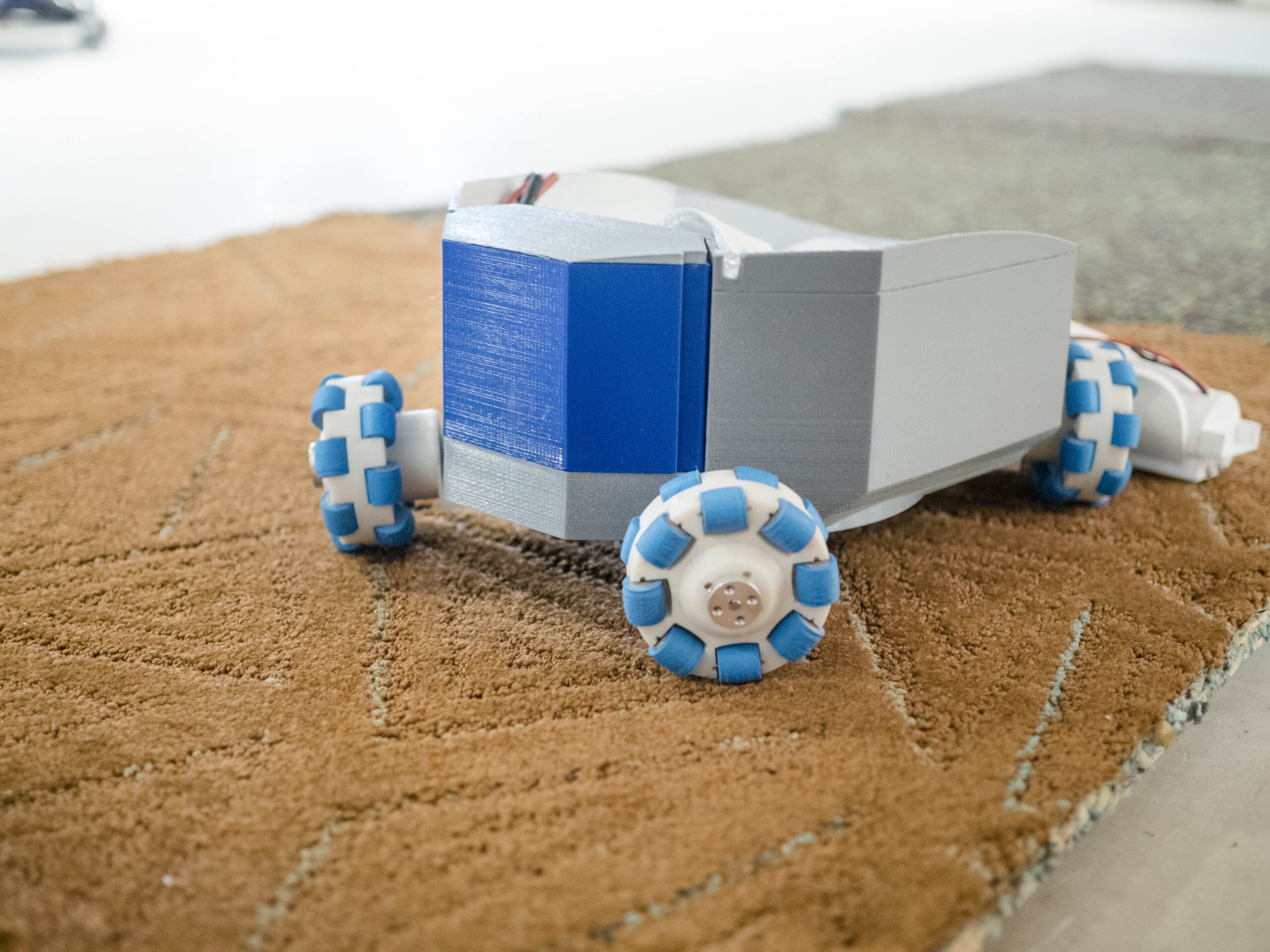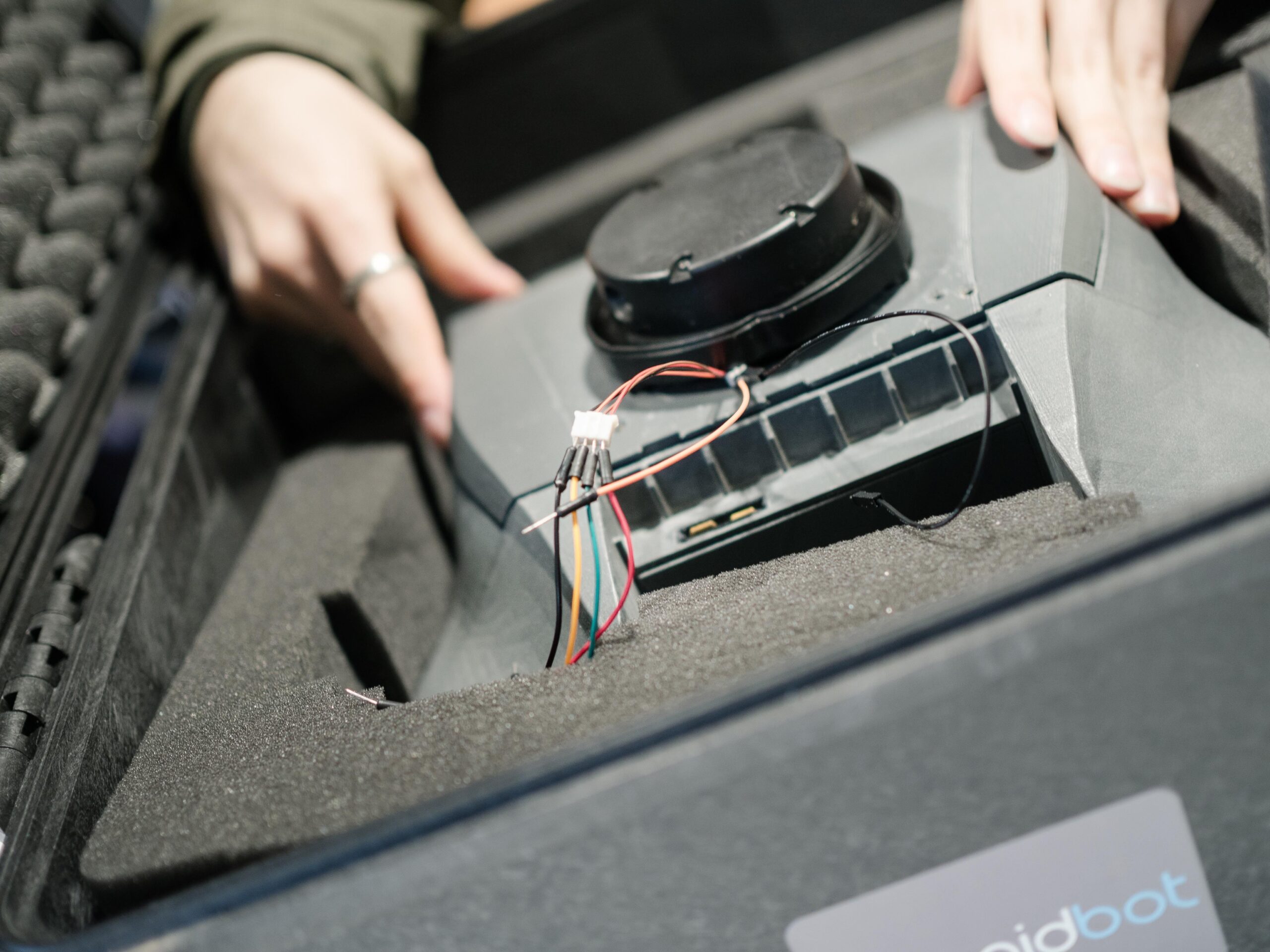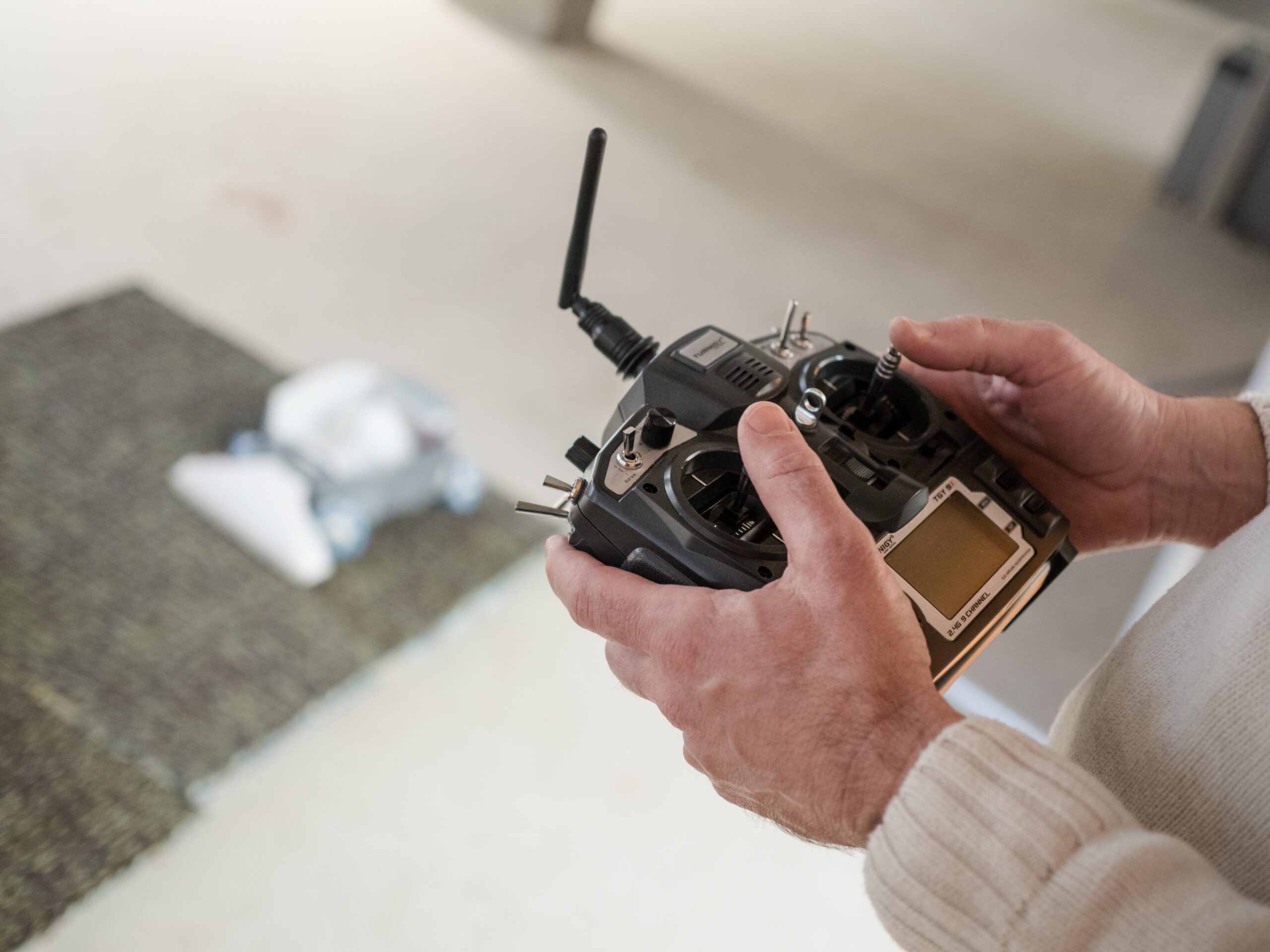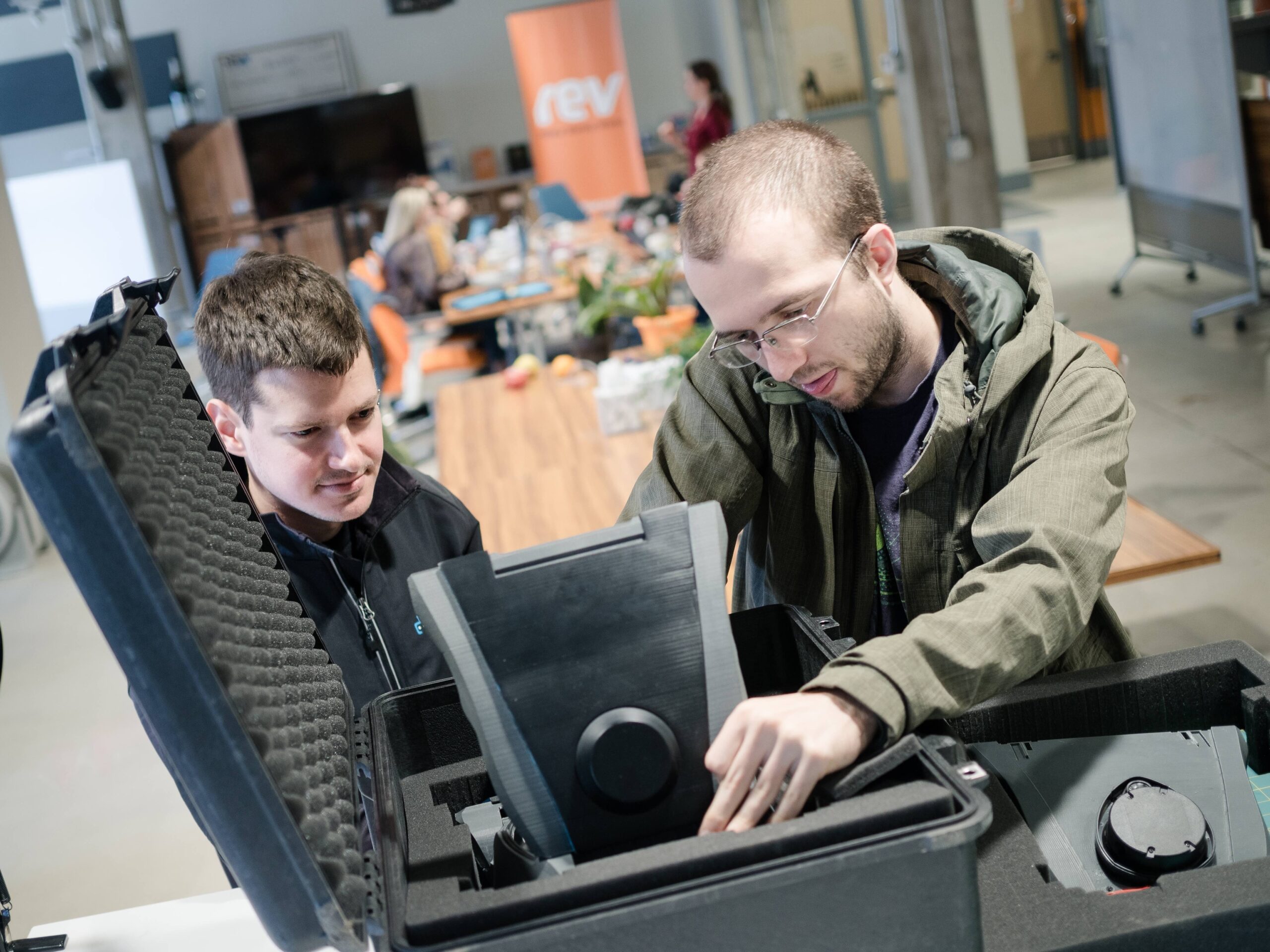Maidbot
An interview with Micah Green, Chief Executive Officer, Maidbot.What is Maidbot?
Maidbot is a robotics company on a mission to revolutionize the hospitality industry. Our goal is to bring Rosie the Robot to life, and we’re starting with a robot that cleans hotels.

What problem are you trying to solve?
There are three big problems. One, is that housekeeping is the highest variable cost at every hotel. Second, is that room attendants have the highest injury rate in the entire service sector. Third, is that cleaning is super inconsistent. We’re trying to automate part of this process through augmentation, rather than replace room attendants. We’re able to lower costs, create a more consistent clean, and reduce workplace injuries.
We’re able to lower costs, create a more consistent clean, and reduce workplace injuries.
How are you impacting the hospitality industry?
Considering these problems, Maidbot can save the hospitality industry a lot of money as costs continue to rise. We’re also reducing injury rates, which creates a more enjoyable work environment and better guest experience. In all of this, our product creates a more efficient system with the power to improve customer service in the hospitality industry.
Who is your primary target audience?
The initial target buyers are hotels with 75+ rooms because they’ll see enough savings and it’ll be worth it for us, too. Hotel room attendants are the users. We’ll eventually shift to secondary markets because our robot will be able to clean floors everywhere–businesses, public places, and more.
What is the most surprising thing that you learned in your customer research?
The hotel industry is very traditional, so bringing in something high-tech like this is a wake-up call! It’s a challenge to get people to understand where our product fits in with the current ecosystem. Some people worry that robots are going to steal everyone’s jobs, so we’re trying to figure out the balance between augmentation and delivering those value propositions. Positioning-wise, it helps us focus on where we want to be, what impact we want to have on the world, and where our boundaries are.

What brought your company to the Southern Tier?
While I was a student at Cornell University, Alec Mitchell (the previous Rev: Ithaca Startup Works Coordinator) came up to me at an event and told me about the Rev Hardware Accelerator program. Once Maidbot joined the Hardware Accelerator, things skyrocketed! We got some investors, started building prototypes, and gained momentum. It was also valuable to remain near Cornell so I could continue my strong relationship with the School of Hotel Administration. The key reasons for staying in the Southern Tier were the hotel school and Cornell support, and the fact that we were established in Rev and had access to its prototyping lab and mentors.
What regional resources have supported the growth of your company?
Mainly the mentorship and guidance available in the Southern Tier. Money-wise, Rev gave us $2,500 last year to start prototyping, and we won a LaunchNY pitch competition, which gave us $1,000.
How did the Rev Hardware Accelerator program impact your company and your product?
The Hardware Accelerator made us approach our product in new ways. We became more focused on commercialization and the steps we have to take to get there. Product-wise, the prototyping lab allowed us to try several iterations and speed up the prototyping process. The Hardware Accelerator is there to help you get from nothing–an idea on a napkin–to a proof of concept through demonstrated customer validation. We were able to prove that this project is something worth pursuing, and Rev helped connect us with the right people. Without the Hardware Accelerator, we would’ve moved much slower and been without so many resources and instructors there to help. Being immersed in the local entrepreneurship community really helps.
What did you find most valuable that made you want to become a Rev full-time member?
Startups never sleep, so having 24/7 access to the Rev prototyping lab was invaluable. Also the mentorship from Southern Tier Startup Alliance Entrepreneurs-In-Residence, Ken Rother (also the Rev Hardware Accelerator Program Director) and Brad Treat, was essential early on for hardware help and creating my pitch deck. Just having a bunch of people surrounding you, supporting you, and being able to talk to them and walk things through–that is always immensely helpful.

How is your business impacting the region?
So far, we’ve brought five new full-time jobs to the area, and 4 part-time, all paid. We’re also using local manufacturing companies and supporting the community by relocating our employees here.
What is your biggest area of weakness?
Experts in the robotics field are in high demand, but the industry is still relatively small. A main challenge is finding roboticists and convincing them to relocate to Ithaca.
Why did you decide to stay in the Southern Tier?
For a startup, you want to reduce your costs as much as possible. The Southern Tier has a great living environment and community, but it’s also affordable. With the local resources and the more reasonable standard of living compared to Silicon Valley, growing Maidbot here made the most sense.
How do you know that you’re on the path to success?
The customer validation is amazing. We’re still in the testing phase, but hotels are already eager to buy our product. Our team is full of geniuses and I’m super lucky to be working with them. The fact that we’ve been receiving solid investments is encouraging. We’re about to close our round.
The key factors for measuring success align with what investors look for: Is there a market? How big is that market? Is it big enough? Yes, very big, and yes! Another important piece is the team: Are these the right people to do this? Absolutely. I have great connections in the hotel industry, and our team is made up of genius engineers. Another factor is a need for funding, and we’re getting the funding we need. All of the pieces for success are there. Now, it’s just execution and making sure we kill it.
The prototyping lab allowed us to try several iterations and speed up the prototyping process. The Hardware Accelerator is there to help you get from nothing–an idea on a napkin–to a proof of concept through demonstrated customer validation.

What is the best advice you’ve ever received as an entrepreneur?
Listen to everyone, but don’t necessarily take everyone’s advice! There’s something called “mentor whiplash” with founders, which means they receive so much feedback and advice that they don’t know what to do. So here’s some advice you should take: think about all of the advice you receive, digest every single piece of it, and try to figure out the right direction. It’s great to rely on mentors and advisors because they can keep your ship sailing in the right direction, but it can be hard to figure out what’s right and what’s wrong. It ultimately comes down to what you think. It’s tricky, because as an entrepreneur, you make so many decisions every day, and must consider so many paths. It’s easy to mess up, but you want to fail fast and learn from it.

What advice would you give to budding entrepreneurs?
Make sure you’re doing what you absolutely love, and imagine a world where you do nothing but this. If you’re willing to give up your social life and free time, skip all of the parties, barely talk to your friends, and do nothing but eat, sleep, breathe, and work for 15 hours or more per day, then you’re in the right spot. If not, be careful. It’s a scary path, and you’re probably not going to do so well if you’re not completely passionate. The key is doing what you love, rather than doing what you might think will make you a lot of money.




